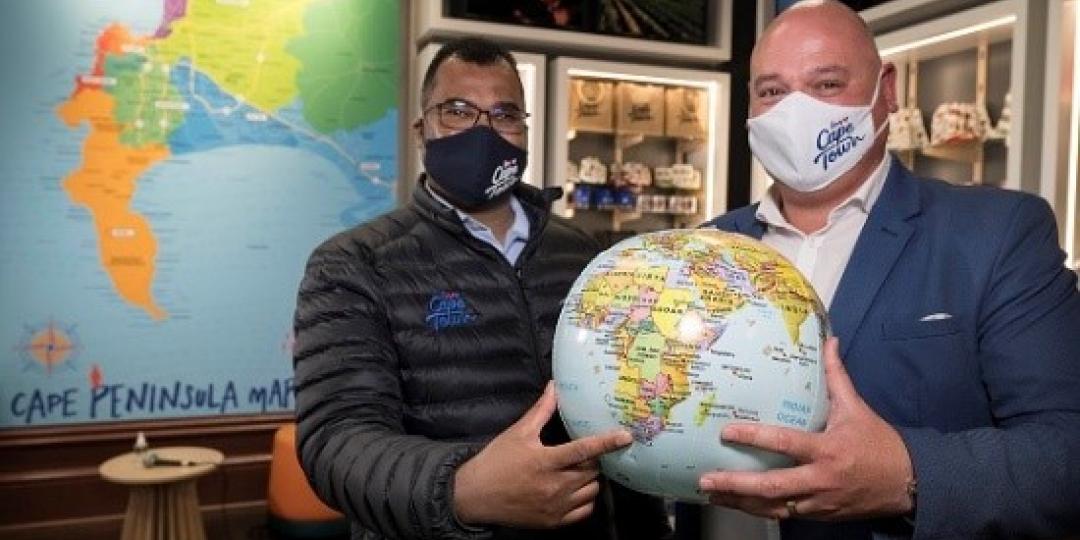While Tourism Month 2021 marks the start of what will hopefully be a period of welcome relief for the tourism and hospitality sector, the success of the summer season remains dependent on the opening of the economy in the Western Cape.
“And so, with the decrease in COVID-19 infections and an exit from our third wave peak, together with the continued successful COVID-19 vaccination roll-out in the province, it is critical that national government considers the easing of lockdown restrictions which are impacting on businesses in the Western Cape,” said Western Cape Minister of Finance and Economic Opportunities, David Maynier.
Maynier said, where it was safe to do so, national government must consider the easing of restrictions on the sale of alcohol, the curfew and the size of gatherings.
“They also need to consider increasing the capacity of large conferencing venues and the attendance of spectators at sporting events where those attending are fully vaccinated.”
According to Maynier, the tourism sector generated R15.5 billion (€908m) in gross value-add and supported 174 982 jobs in 2019 in the Western Cape. But the sector has been hard hit and, while the province maintains the lowest unemployment rate in South Africa, the tourism sector is estimated to have lost 75 477 jobs in 2020.
“This is why reigniting tourism is important for jobs and the economy in the Western Cape. We will continue to do everything we can to ensure the most successful summer season possible by tackling barriers to growth for the tourism and hospitality sector, increasing connectivity to the region and running our award-winning destination marketing campaigns that showcase the best that Cape Town and the Western Cape have to offer,” said Maynier.
He said the province’s tourism and promotion agency, Wesgro, was already hard at work on campaigns for the upcoming summer season, with an international campaign running in Germany and the Netherlands.
Uptick in domestic tourism
Last year saw a noticeable uptick in domestic arrivals post-winter and the first-wave lockdown, said Maynier, noting that this year the Western Cape expected a similar pattern as domestic airlines resumed operations.
Speaking at the City of Cape Town's official Tourism Month launch yesterday (September 1); at City Hall’s revamped Visitor Information Centre; the City of Cape Town Mayoral Committee Member for Economic Opportunities and Asset Management, James Vos, pointed out that local hospitality businesses had seen a similar uptick in business.
“Prior to the third wave, hotel occupancy rates during the second quarter of 2021 recorded a more significant improvement in occupancy than almost all other sub-markets in South Africa. This also came about in the two months leading up to winter, typically when occupancy rates decline throughout the Western Cape,” he said.
More international airlines
“As restrictions ease on travel to and from South Africa, more international airlines are also scheduled to return to Cape Town International Airport. With key European source markets, such as Germany, France and the Netherlands now open to travel to South Africa, we are optimistic that the summer season will be much better than last year,” Vos commented.
He pointed out that there was evidence of this with Cape Town International Airport achieving a 21% passenger recovery rate for the first three weeks of August 2021, compared with the same period in 2019, while international airline capacity reached the 50% recovery mark for the first time since the resumption of international services in October 2020.
Vos added that this was the highest recovery rate since international travel resumed.
He reiterated a call for the Department of Transport to approve Delta Air Lines’ request to fly to Cape Town. “The US is a key tourist market for Cape Town and the majority of their travellers to South Africa include the Mother City in their itineraries. The Transport Department’s decision to inconvenience international travellers in this way will severely impact Cape Town – and thus South Africa’s – tourism industry.”
A map to recovery
Vos said, to not only help the local tourism industry get back to its pre-pandemic altitude, but to actually go higher and make it to the destination of ‘tourism for inclusive growth’, the City had mapped out specific interlinked goals.
These include:
- Developing community tourism to show the diversity, cuisine and cultures that make Cape Town unique.
- Providing businesses with a Neighbourhood Experience Development training manual to help guide SMMEs to develop their businesses and encourage neighbourhood readiness for when visitors return.
- Targeting African travellers through marketing campaigns in countries across the continent while exploring partnerships and sister city agreements in markets such as Kenya, Botswana, Zambia and Nigeria.
- Overseas marketing campaigns that will take shape under the new ‘Find Your Freedom’ campaign where potential travellers will be able to choose their own Cape Town adventure in an interactive video.
“We are also busy engaging with international partners and destinations to put branding in airports and billboards in those cities, as well as in-flight media on specific international airlines to make sure potential travellers in key source markets convert to actual travellers,” said Vos.























